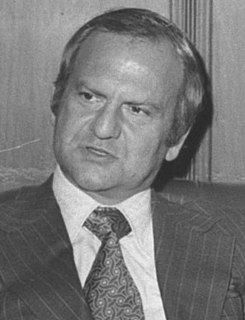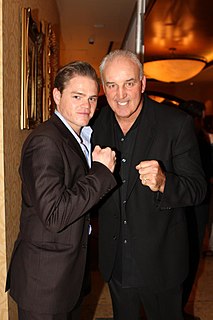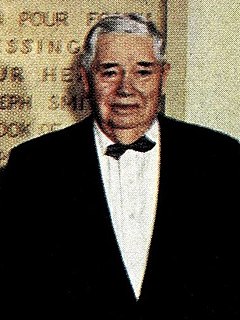A Quote by Colin Powell
Throughout my career, I learned plenty about war on the battlefield, but I learned even more about the importance of finding peace. And that is what the State Department and U.S.A.I.D. do: prevent the wars that we can avoid so that we fight only the ones we must.
Related Quotes
I think we have to be active in teaching our children, and teaching each other. We have to be active about kindness and about peace. I've always fantasized that it would be great if there was a Department of Peace. We have a military, but what if there was a department devoted entirely and truthfully to finding peaceful resolutions?
To suggest that war can prevent war is a base play on words and a despicable form of warmongering. The objective of any who sincerely believe in peace clearly must be to exhaust every honorable recourse in the effort to save the peace. The world has had ample evidence that war begets only conditions that beget further war.
It seems strangely difficult for some to realize that here in Asia is where the Communist conspirators have elected to make their play for global conquest, and that we have joined the issue thus raised on the battlefield; that here we fight Europe's war with arms while the diplomats there still fight it with words; that if we lose the war to communism in Asia the fall of Europe is inevitable, win it and Europe most probably would avoid war and yet preserve freedom. As you pointed out, we must win. There is no substitute for victory.
Not only does the Charter Organization not prevent future wars, but it makes it practically certain that we shall have future wars, and as to such wars it takes from us the power to declare them, to choose the side on which we shall fight, to determine what forces and military equipment we shall use in the war, and to control and command our sons who do the fighting.
But, like all metaphoric wars, the copyright wars are not actual conflicts of survival. Or at least, they are not conflicts for survival of a people or a society, even if they are wars of survival for certain businesses or, more accurately, business models. Thus we must keep i mind the other values or objectives that might also be affected by this war. We must make sure this war doesn't cost more than it is worth. We must be sure it is winnable, or winnable at a price we're willing to pay.












































